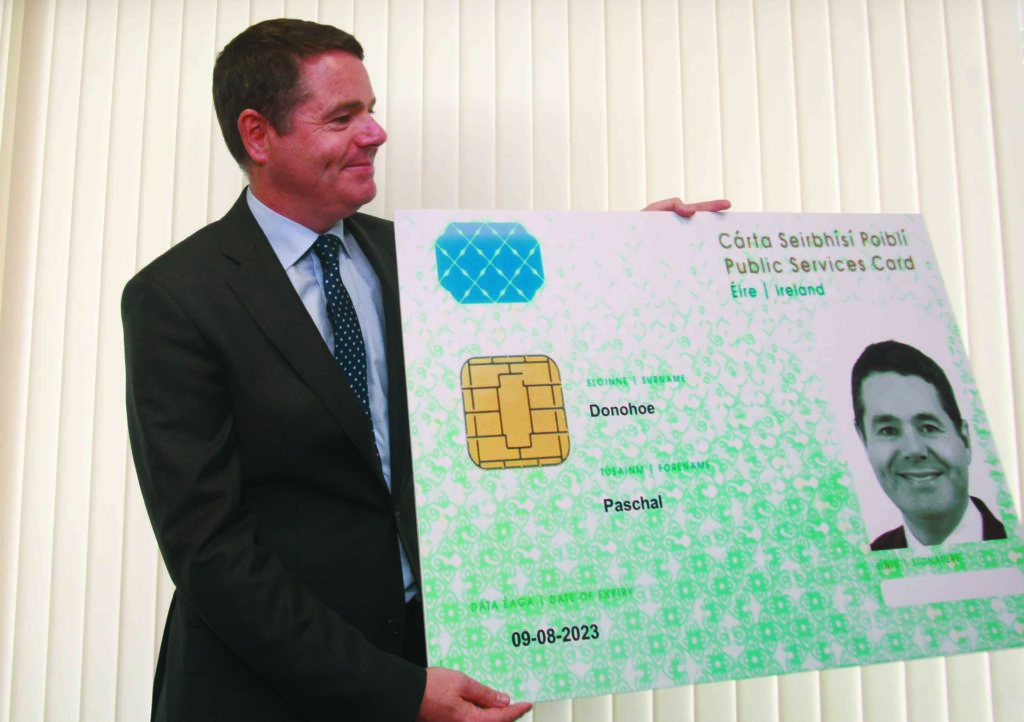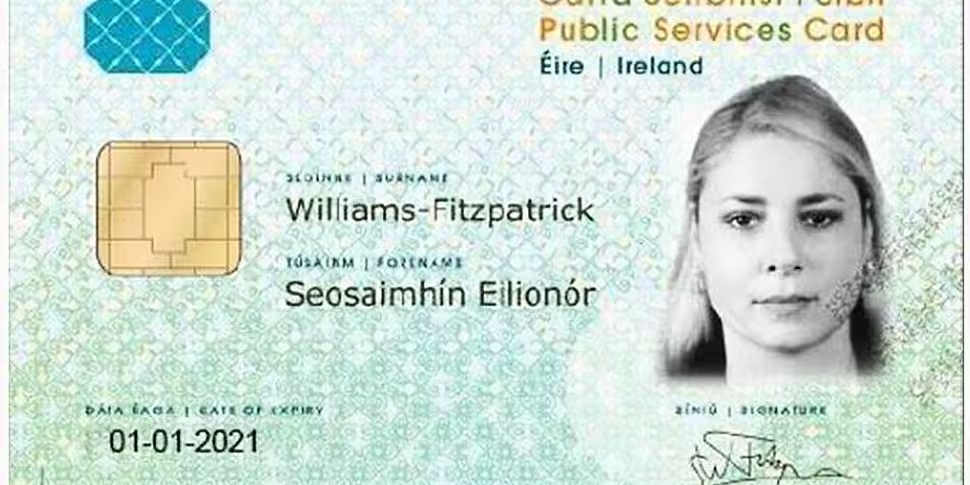People who use medical cards and social welfare identity cards could be under surveillance without realising it.
That is according to the Irish Council for Civil Liberties (ICCL), which is criticising the system behind the Public Services Card (PSC).
The card, which was introduced in 2011, is usually issued when someone is given a PPS number.
If someone applies for, or is currently getting a social welfare payment, they are asked to register for the card.
It has also been rolled out to other public services.
For example, all first-time passport applicants who are resident in Ireland need to have the card.
 Minister Paschal Donohoe at the Public Services Card Centre on D'Olier House in Dublin in 2017 | Image: RollingNews.ie
Minister Paschal Donohoe at the Public Services Card Centre on D'Olier House in Dublin in 2017 | Image: RollingNews.ieThis also applies to a small number of adult passport applicants whose last passport was issued before January 2005, and has since been reported lost, stolen or damaged.
It is also required for those who are entitled to free travel - the card displays this information in the top left-hand corner.
The UN Special Rapporteur on Extreme Poverty, Professor Philip Alston, is giving a talk in at the Pavee Point Traveller and Roma Centre in Dublin on Monday.
He is focusing on how surveillance technology is being introduced into social welfare systems around the globe.
Prof Alston is John Norton Pomeroy Professor of Law at New York University School of Law, and co-chair of the law school's Centre for Human Rights and Global Justice.
The ICCL recently submitted a report on the Public Services Card to Prof Alston for his upcoming report to the UN Human Rights Council on digital surveillance technologies.
The group says the card is a well-known Irish example "of how technology can be used against people living in poverty."
"The Government has created a digital check point where people must hand over their biometric data in order to put food on the table.
"It's deeply unfair, because those required to get the PSC are least likely to be able to fight it."
The Data Protection Commissioner is expected to release her report into the legality of the Public Services Card in the coming weeks.









